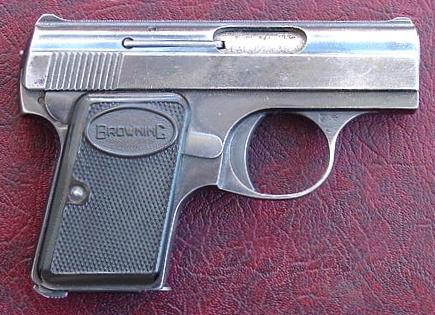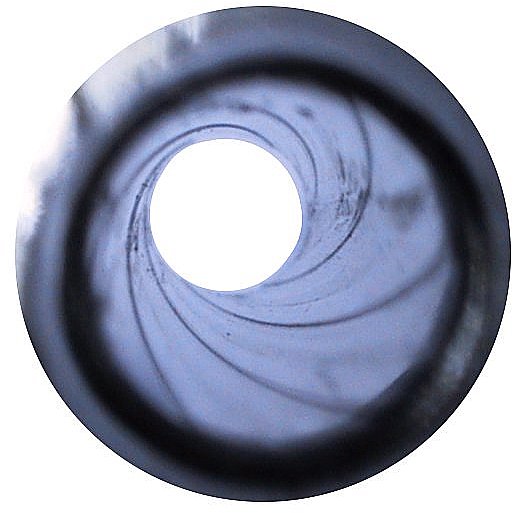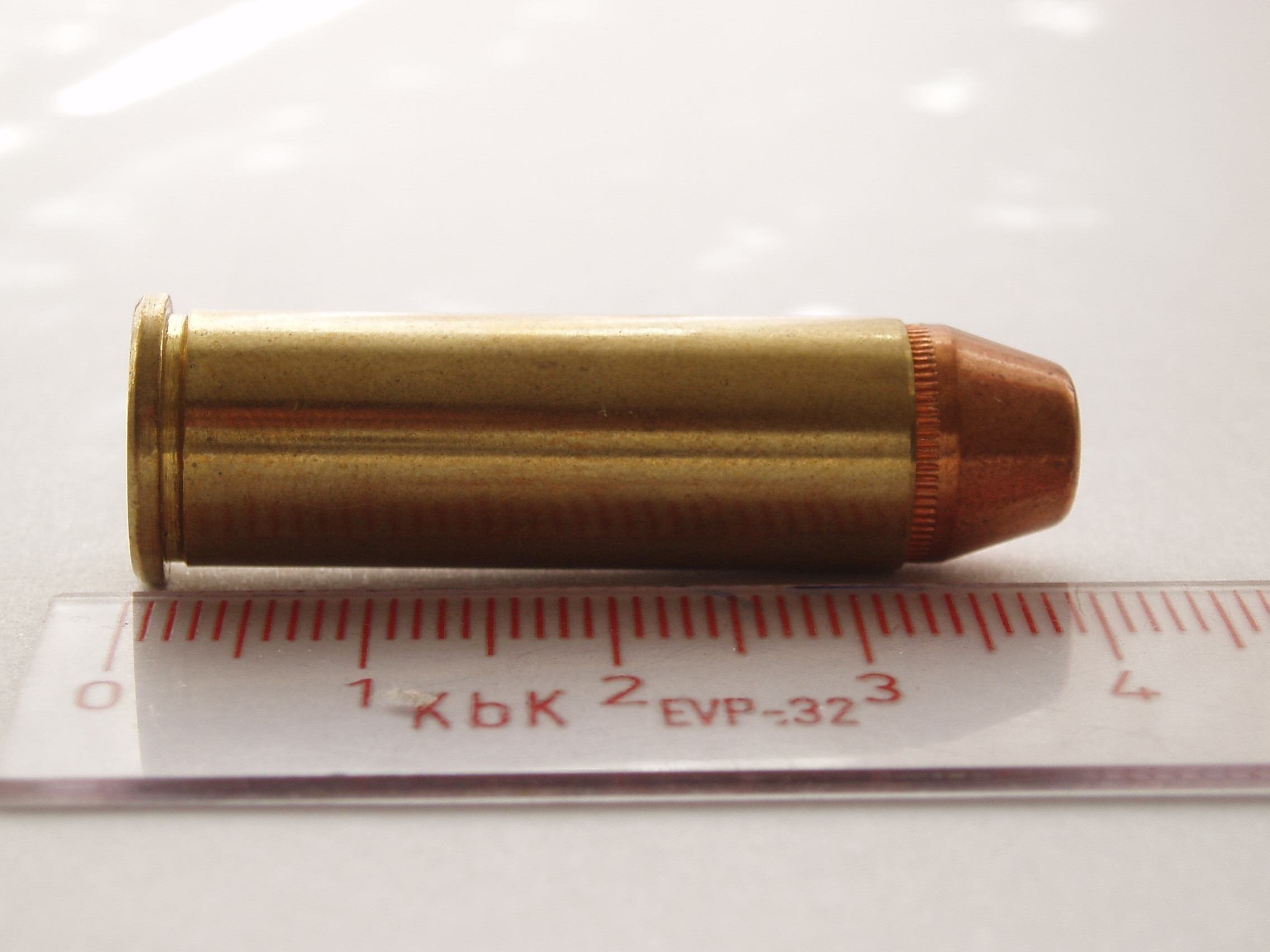|
Philadelphia Deringer
A derringer is a small handgun that is neither a revolver nor a semi/ fully automatic pistol. It is not to be confused with mini-revolvers or pocket pistols, although some later derringers were manufactured with the pepperbox configuration. The modern derringer is often multi-barreled, and is generally the smallest usable handgun of any given caliber and barrel length due to the lack of a moving action, which takes up more space behind the barrel. It is frequently used by women because it is easily concealable in a purse or a stocking. The original Philadelphia Deringer was a muzzleloading caplock single-shot pistol introduced in 1825 by Henry Deringer. In total, approximately 15,000 Deringer pistols were manufactured. All were single barrel pistols with back-action percussion locks, typically .41 caliber with rifled bores, and walnut stocks. Barrel length varied from , and the hardware was commonly a copper-nickel alloy known as "German silver". The term "der ... [...More Info...] [...Related Items...] OR: [Wikipedia] [Google] [Baidu] |
Pocket Pistol
In American English, a pocket pistol is any small, pocket-sized semi-automatic pistol (or less commonly referencing either derringers, or small revolvers), and is suitable for concealed carry in either a coat, jacket, or trouser pocket. Pocket pistols are sometimes categorized as smaller than sub-compact pistols, but the distinction is not clear-cut as some small sub-compact pistols may be categorized as pocket pistols, and some large pocket pistols may be classified as sub-compact pistols. Pocket pistols were popular in the United States until the 1960s and 1970s when most states passed laws limiting or prohibiting the carry of concealed weapons. However, the passage of "shall issue" firearms license laws in the 1980s and 1990s resulted in a resurgence in the popularity of pocket pistols in the United States, creating new markets for small, simple, reliable, concealed-carry firearms. In general use, the term pocket pistol is purely descriptive, but "mouse gun" (used especiall ... [...More Info...] [...Related Items...] OR: [Wikipedia] [Google] [Baidu] |
Caplock
The percussion cap or percussion primer, introduced in the early 1820s, is a type of single-use percussion ignition device for muzzle loader firearm locks enabling them to fire reliably in any weather condition. This crucial invention gave rise to the cap lock mechanism or percussion lock system using percussion caps struck by the hammer to set off the gunpowder charge in percussion guns including percussion rifles and cap and ball firearms. Any firearm using a caplock mechanism is a percussion gun. Any long gun with a cap-lock mechanism and rifled barrel is a percussion rifle. Cap and ball describes cap-lock firearms discharging a single bore-diameter spherical bullet with each shot. Description The percussion cap is a small cylinder of copper or brass with one closed end. Inside the closed end is a small amount of a shock-sensitive explosive material such as mercuric fulminate (discovered in 1800; it was the only practical detonator used from about 1850 to the early 20th cen ... [...More Info...] [...Related Items...] OR: [Wikipedia] [Google] [Baidu] |
Toby Version Of A Queen Anne Flintlock Pistol
Toby is a popular, usually male, name in many English-speaking world, English speaking countries. The name is from the Middle English vernacular form of Tobias. Tobias itself is the Greek transliteration of the Hebrew טוביה ''Toviah'', which translates to ''Good is Yahweh''. Yahweh is the name of the Jewish God. Toby is also an alternate form of Tobias. It is also used as a contraction of Tobin (surname), Tobin, an Irish surname now also used as a forename. People named or nicknamed Toby * Toby Alderweireld (born 1989), Belgian professional football player * Toby Bailey (born 1975), American sports agent former professional basketball player * Toby Balding (1936–2014), British racehorse trainer * Toby Barker (born 1981), American politician * Toby Barrett (born 1945), Canadian politician * Toby Brighty (born 1995), English Graphic Designer * Toby Colbeck (1884-1918), English cricketer * Toby Cosgrove (born 1940), American surgeon * Toby Creswell (born 1955), Australian mu ... [...More Info...] [...Related Items...] OR: [Wikipedia] [Google] [Baidu] |
Cartridge (weaponry)
A cartridge or a round is a type of pre-assembled firearm ammunition packaging a projectile ( bullet, shot, or slug), a propellant substance (usually either smokeless powder or black powder) and an ignition device ( primer) within a metallic, paper, or plastic case that is precisely made to fit within the barrel chamber of a breechloading gun, for the practical purpose of convenient transportation and handling during shooting. Although in popular usage the term "bullet" is often informally used to refer to a complete cartridge, it is correctly used only to refer to the projectile. Cartridges can be categorized by the type of their primers – a small charge of an impact- or electric-sensitive chemical mixture that is located: at the center of the case head (centerfire); inside the rim ( rimfire); inside the walls on the fold of the case base that is shaped like a cup (cupfire, now obsolete); in a sideways projection that is shaped like a pin (pinfire, now obsolete) ... [...More Info...] [...Related Items...] OR: [Wikipedia] [Google] [Baidu] |
Generic Term
Trademark distinctiveness is an important concept in the law governing trademarks and service marks. A trademark may be eligible for registration, or registrable, if it performs the essential trademark function, and has distinctive character. Registrability can be understood as a continuum, with "inherently distinctive" marks at one end, "generic" and "descriptive" marks with no distinctive character at the other end, and "suggestive" and "arbitrary" marks lying between these two points. "Descriptive" marks must acquire distinctiveness through secondary meaning—consumers have come to recognize the mark as a source indicator—to be protectable. "Generic" terms are used to refer to the product or service itself and cannot be used as trademarks. The spectrum of distinctiveness In United States trademark law, Abercrombie & Fitch Co. v. Hunting World 537 F.2d 4 (2nd Cir. 1976) established the spectrum of trademark distinctiveness in the US, breaking trademarks into classes which ... [...More Info...] [...Related Items...] OR: [Wikipedia] [Google] [Baidu] |
Lincoln Assassination
On April 14, 1865, Abraham Lincoln, the 16th president of the United States, was assassinated by well-known stage actor John Wilkes Booth, while attending the play ''Our American Cousin'' at Ford's Theatre in Washington, D.C. Shot in the head as he watched the play, Lincoln died the following day at 7:22 am in the Petersen House opposite the theater. He was the first U.S. president to be assassinated, with his funeral and burial marking an extended period of national mourning. Occurring near the end of the American Civil War, Lincoln's assassination was part of a larger conspiracy intended by Booth to revive the Confederate cause by eliminating the three most important officials of the United States government. Conspirators Lewis Powell and David Herold were assigned to kill Secretary of State William H. Seward, and George Atzerodt was tasked with killing Vice President Andrew Johnson. Beyond Lincoln's death, the plot failed: Seward was only wounded, and Johnson's ... [...More Info...] [...Related Items...] OR: [Wikipedia] [Google] [Baidu] |
German Silver
Nickel silver, Maillechort, German silver, Argentan, new silver, nickel brass, albata, alpacca, is a copper alloy with nickel and often zinc. The usual formulation is 60% copper, 20% nickel and 20% zinc. Nickel silver does not contain the element silver. It is named for its silvery appearance, which can make it attractive as a cheaper and more durable substitute. It is also well suited for being plated with silver. A naturally occurring ore composition in China was smelted into the alloy known as or () ("white copper" or cupronickel). The name "German Silver" refers to the artificial recreation of the natural ore composition by German metallurgists.Joseph Needham, Ling Wang, Gwei-Djen Lu, Tsuen-hsuin Tsien, Dieter Kuhn, Peter J Golas''Science and civilisation in China'' Cambridge University Press: 1974, , pp. 237–250 All modern, commercially important, nickel silvers (such as those standardized under ASTM B122) contain significant amounts of zinc and are sometimes considered ... [...More Info...] [...Related Items...] OR: [Wikipedia] [Google] [Baidu] |
Copper-nickel
Cupronickel or copper-nickel (CuNi) is an alloy of copper that contains nickel and strengthening elements, such as iron and manganese. The copper content typically varies from 60 to 90 percent. (Monel is a nickel-copper alloy that contains a minimum of 52 percent nickel.) Despite its high copper content, cupronickel is silver in colour. Cupronickel is highly resistant to corrosion by salt water, and is therefore used for piping, heat exchangers and condensers in seawater systems, as well as for marine hardware. It is sometimes used for the propellers, propeller shafts, and hulls of high-quality boats. Other uses include military equipment and chemical, petrochemical, and electrical industries. Another common 20th-century use of cupronickel was silver-coloured coins. For this use, the typical alloy has 3:1 copper to nickel ratio, with very small amounts of manganese. In the past, true silver coins were debased with cupronickel, such as coins of the pound sterling from 1947 onward ... [...More Info...] [...Related Items...] OR: [Wikipedia] [Google] [Baidu] |
Stock (firearms)
A gunstock or often simply stock, the back portion of which is also known as a shoulder stock, a buttstock or simply a butt, is a part of a long gun that provides structural support, to which the barrel, action, and firing mechanism are attached. The stock also provides a means for the shooter to firmly brace the gun and easily aim with stability by being held against the user's shoulder when shooting the gun, and helps to counter muzzle rise by transmitting recoil straight into the shooter's body. The tiller of a crossbow is functionally the equivalent of the stock on a gun. History and etymology The term stock in reference to firearms dates to 1571 is derived from the Germanic word ''Stock'', meaning tree trunk, referring to the wooden nature of the gunstock. Early hand cannons used a simple stick fitted into a socket in the breech end to provide a handle. The modern gunstock shape began to evolve with the introduction of the arquebus, a matchlock with a longer b ... [...More Info...] [...Related Items...] OR: [Wikipedia] [Google] [Baidu] |
Rifling
In firearms, rifling is machining helical grooves into the internal (bore) surface of a gun's barrel for the purpose of exerting torque and thus imparting a spin to a projectile around its longitudinal axis during shooting to stabilize the projectile longitudinally by conservation of angular momentum, improving its aerodynamic stability and accuracy over smoothbore designs. Rifling is characterized by its twist rate, which indicates the distance the rifling takes to complete one full revolution, such as "1 turn in 10 inches" (1:10 inches), "1 turn in 254 mm" ("1:254 mm" or "1:25.4 cm)", or the like. Normally, an experienced shooter can infer the units of measurement from the numbers alone. A shorter distance indicates a faster twist, meaning that for a given velocity the projectile will rotate at a higher spin rate. The combination of length, weight, and shape of a projectile determines the twist rate needed to gyroscopically stabilize it – ... [...More Info...] [...Related Items...] OR: [Wikipedia] [Google] [Baidu] |
41 Caliber
This is a list of firearm cartridges which have bullets in the to caliber range. *''Length'' refers to the cartridge case length. *''OAL'' refers to the overall length of the cartridge. All measurements are in mm (in). Pistol cartridges Revolver cartridges Rifle cartridges See also *.410 bore The .410 bore is one of the smallest caliber of shotgun shell commonly available (along with the 9mm Flobert rimfire cartridge, and the less common .22 rimfire shot shell). A .410 bore shotgun loaded with shot shells is well suited for small g ... References {{Firearm cartridge calibers Pistol and rifle cartridges ... [...More Info...] [...Related Items...] OR: [Wikipedia] [Google] [Baidu] |
Percussion Lock
The percussion cap or percussion primer, introduced in the early 1820s, is a type of single-use percussion ignition device for muzzle loader firearm locks enabling them to fire reliably in any weather condition. This crucial invention gave rise to the cap lock mechanism or percussion lock system using percussion caps struck by the hammer to set off the gunpowder charge in percussion guns including percussion rifles and cap and ball firearms. Any firearm using a caplock mechanism is a percussion gun. Any long gun with a cap-lock mechanism and rifled barrel is a percussion rifle. Cap and ball describes cap-lock firearms discharging a single bore-diameter spherical bullet with each shot. Description The percussion cap is a small cylinder of copper or brass with one closed end. Inside the closed end is a small amount of a shock-sensitive explosive material such as mercuric fulminate (discovered in 1800; it was the only practical detonator used from about 1850 to the early 20th cen ... [...More Info...] [...Related Items...] OR: [Wikipedia] [Google] [Baidu] |







